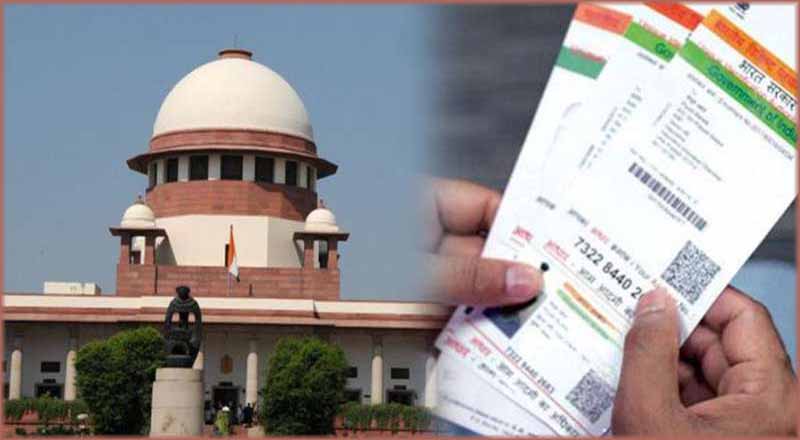The five-judge constitution bench, led by Chief Justice Dipak Misra, delivered their verdicts on the controversial issue of Aadhaar, upholding its constitutional validity. A total of 31 petitions had challenged the verdict citing violations of the right to privacy. The Supreme Court has delivered verdicts on whether the mandatory linking of Aadhaar with welfare schemes, bank accounts, PAN, etc, violates the privacy of individuals or it is necessary to maintain accountability and ensure all government benefits reach the poor.
The Unique Identification Authority of India (UIDAI) has the biometric data of 122 crore Indians. Several questions have been raised over its safety and security, fearing the data theft could lead to leakage of personal information.
The Verdict includes –
- It is mandatory to link PAN card with Aadhaar
- Aadhaar is a must for filing income tax returns
- Aadhaar is necessary for availing welfare schemes and subsidies given by the government
- Aadhaar data is not needed for opening a bank account as the SC struck down Section 57 of the Aadhaar Act which allowed private companies to avail Aadhaar data
- With the SC striking down Section 57 other private entities like telecom and e-commerce firms are now barred from asking for Aadhaar. So, Aadhaar is not needed to get a SIM or shop online.
- Aadhaar is not needed for admission in schools adding that no child can be denied benefits of any schemes on not being able to bring Aadhar.
- Aadhaar no more compulsory to appear in CBSE, UGC and NEET Examinations
- Aadhaar Act does not violate privacy of citizens
- Aadhaar can be passed as money bill
- The court strikes down mobile-Aadhaar linking
- Aadhaar cannot be mandated for opening of bank account
Justice Sikri ended the judgement on a lighter note. He comments, “Education moved us from thumb impressions to signatures. Technology moved us back from signatures to thumb impressions.”





